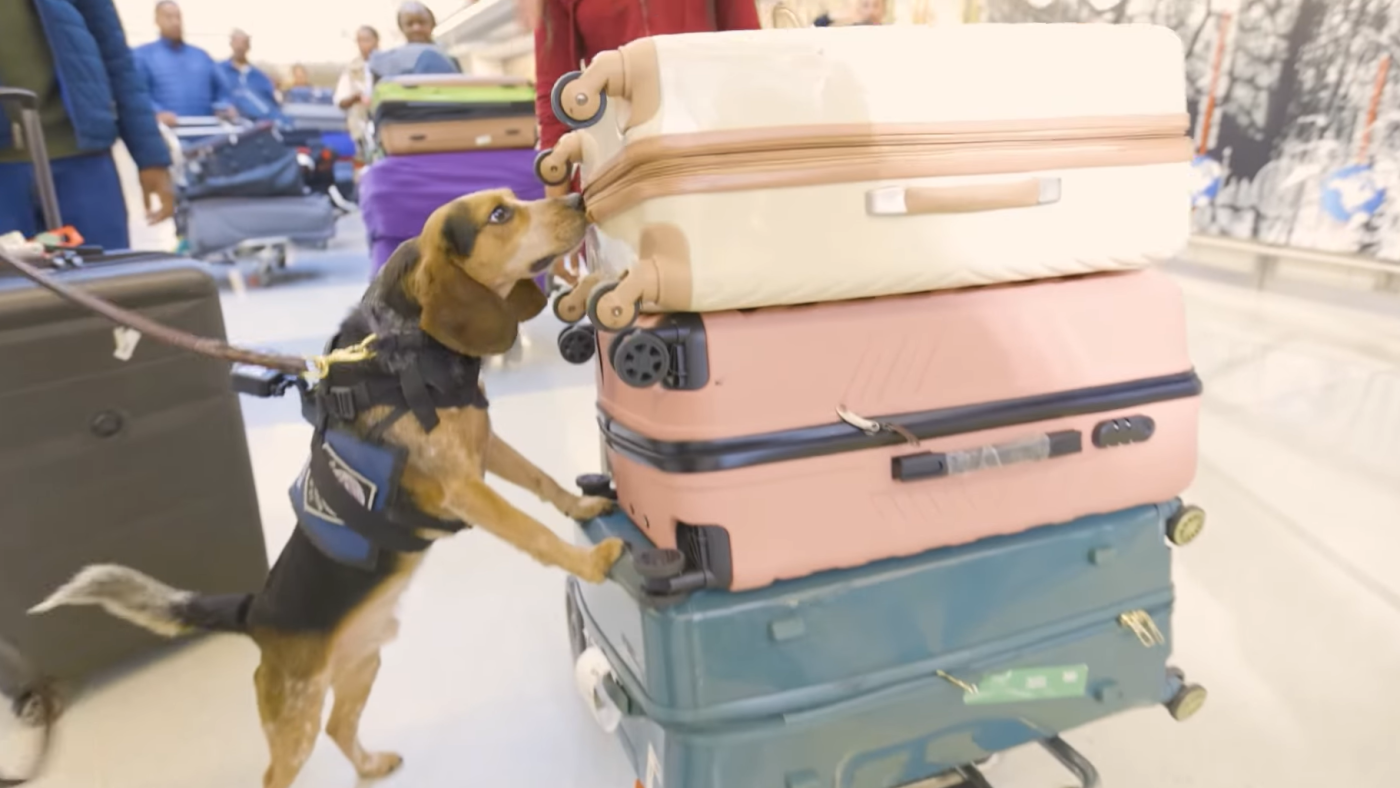The incident at Washington Dulles International Airport involving a U.S. Customs and Border Protection (CBP) beagle named Freddie has sparked a broader conversation about law enforcement animal protection, traveler behavior, and the critical role these working dogs play in border security. The case, which involved an Egyptian traveler named Hamed Ramadan Bayoumy Aly Marie, highlights the complexities of enforcing regulations while ensuring the safety and well-being of both animals and humans. This analysis delves into the events surrounding the incident, the broader implications for airport security, and the ethical considerations at play.
The Incident: A Violent Outburst and Its Consequences
Freddie, a 5-year-old CBP beagle, was performing a routine inspection of baggage arriving from Cairo, Egypt, when he alerted his handler to a suitcase containing prohibited agricultural products and over 100 pounds of illicit food items. The traveler, Marie, reacted violently by kicking Freddie with such force that the 25-pound beagle was lifted off the ground. The kick caused contusions to Freddie’s rib area, though the dog is expected to recover. The severity of the act prompted immediate legal and administrative action, with Marie facing federal criminal charges for harming an animal used in law enforcement.
This incident underscores the risks that law enforcement animals face daily. While the physical injuries to Freddie were treatable, the psychological and operational impacts of such violence can be long-lasting. The swift legal response to the incident—including charges and deportation for Marie—sends a clear message that such behavior will not be tolerated. However, the case also raises questions about the underlying motivations of travelers who attempt to smuggle prohibited items and the potential for confrontational behavior when their actions are discovered.
The Role of CBP Beagles in Border Security
CBP beagles like Freddie are specially trained to detect contraband, including agricultural products, illegal foodstuffs, drugs, and other banned substances hidden in luggage. Their keen sense of smell allows them to identify items that pose biosecurity risks or violate import regulations, thereby protecting U.S. agriculture and public health. The Beagle Brigade and similar K9 units at airports are essential for maintaining secure borders, as they help prevent the introduction of invasive species, contamination, and diseases that could cause significant economic damage.
The effectiveness of these dogs relies on their training, care, and protection. When incidents like the one involving Freddie occur, it disrupts the operational flow and can lead to delays in inspections. Moreover, the emotional and psychological toll on handlers cannot be overlooked. The bond between a handler and their canine partner is crucial for their teamwork, trust, and operational success. When a dog is harmed, it not only affects the animal but also the handler, who may experience stress, anxiety, or even trauma.
Legal and Ethical Dimensions of the Traveler’s Actions
The response from Hamed Ramadan Bayoumy Aly Marie was not only a violation of federal law but also a breach of ethical standards. Kicking a working dog is a clear disregard for the law and the well-being of a service animal performing its duties. Legally, causing harm to a law enforcement animal can result in fines, imprisonment, and deportation for non-citizens, as seen in this case. The charges against Marie reflect the seriousness with which such offenses are treated.
Ethically, the assault on Freddie highlights a troubling lack of respect for these animals, which are trained to keep airports and the country safe. It also undermines public safety efforts and presents challenges for handlers who rely on the dogs’ ability to perform their duties without interference or harm. The incident serves as a reminder that public awareness and education are crucial in fostering a culture of respect for law enforcement animals.
Broader Implications for Airport Security and Public Awareness
The case involving Freddie and Marie has broader implications for airport security and public awareness. First, it underscores the need for increased traveler education. Many travelers may not fully understand the purpose and importance of K9 searches, leading to confrontational or deceptive behavior when their luggage is inspected. Increased outreach and education could help travelers cooperate more effectively with security measures, reducing the likelihood of hostile incidents.
Second, the incident highlights the importance of animal welfare enforcement. The legal system’s swift response to the assault on Freddie sends a strong message that violence against service animals will not be tolerated. This reinforces the need for robust protection protocols for law enforcement animals and ensures that those who harm them face appropriate consequences.
Third, the case illustrates the persistent challenge of smuggling prohibited items through airports. Offenders often resort to confrontational or deceptive tactics when their actions are discovered, posing a risk to both security personnel and the public. Strengthening security measures and enhancing the training of K9 units can help mitigate these risks.
Finally, the incident underscores the importance of public perception. Highlighting the work and sacrifices of law enforcement dogs can generate empathy and respect among the public. By recognizing the vital role these animals play in national security, the public can better appreciate the need to protect them and support their handlers.
Conclusion: Upholding Respect for Law Enforcement Animals
The incident involving Freddie the beagle is a stark reminder of the vital role played by CBP beagles in national security and the need for strong protections for these animals. The violent kick not only caused physical harm but also symbolically challenged the authority and safety measures at the airport. Protecting working dogs like Freddie is essential for maintaining effective border security operations and upholding the rule of law.
Public education, legal enforcement, and compassion toward these canine agents help ensure that airports remain safe for travelers, handlers, and the dogs themselves. This incident should serve as a catalyst for increased awareness and respect for the animal heroes who sniff out danger and keep nations secure every day. By fostering a culture of respect and understanding, we can better support the critical work of law enforcement animals and their handlers.

